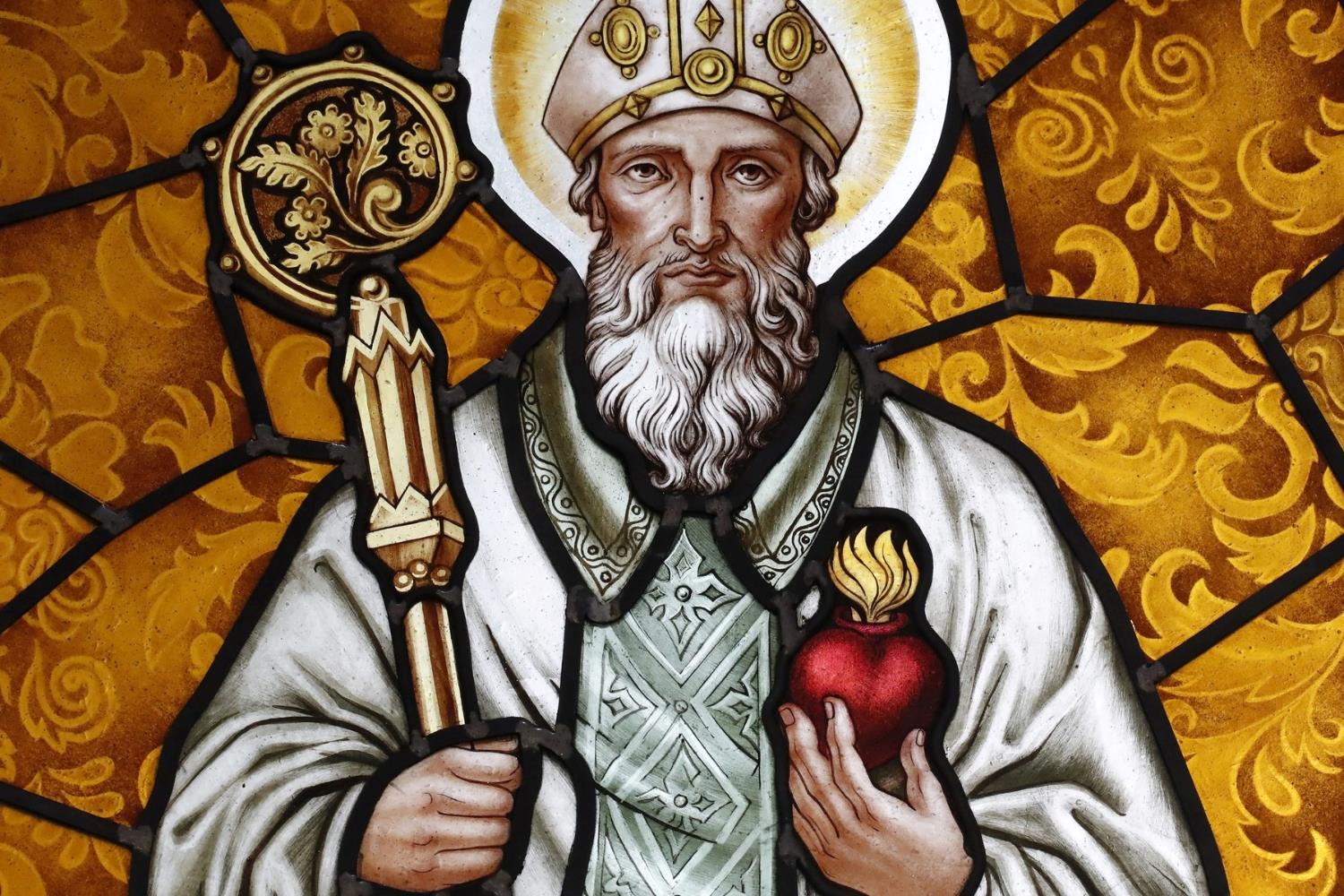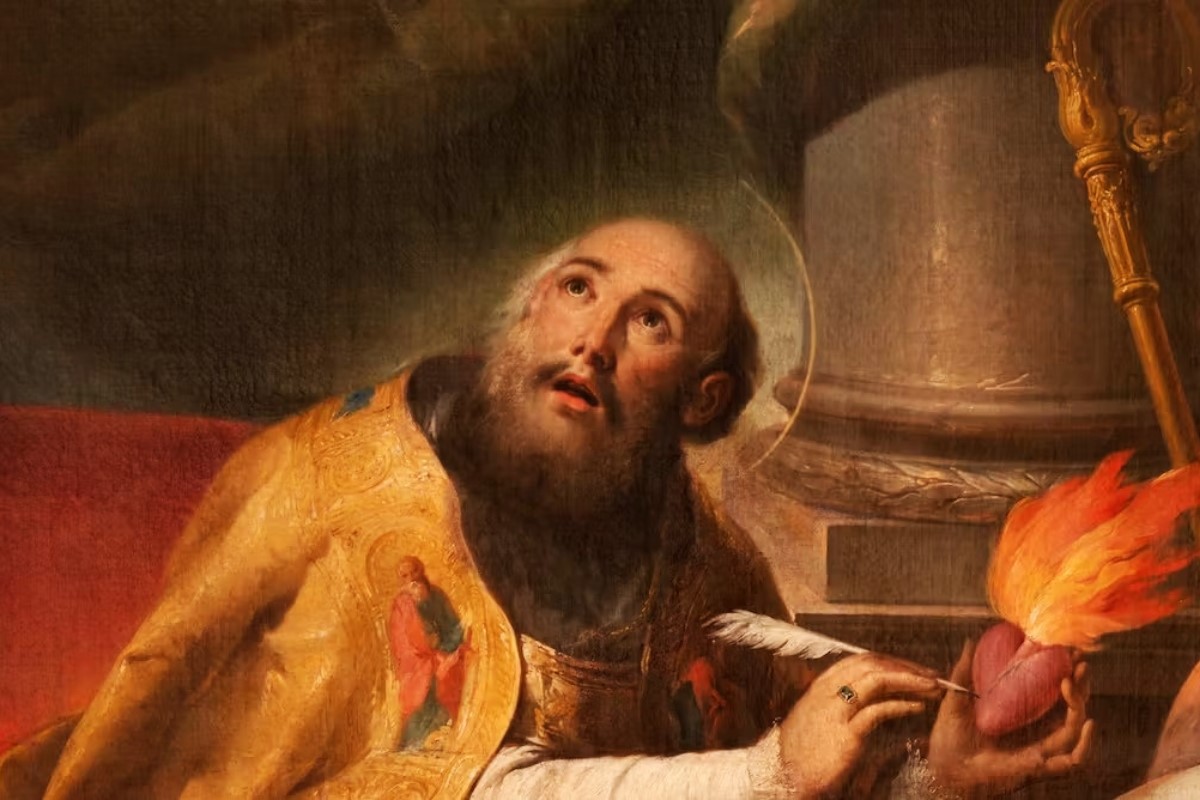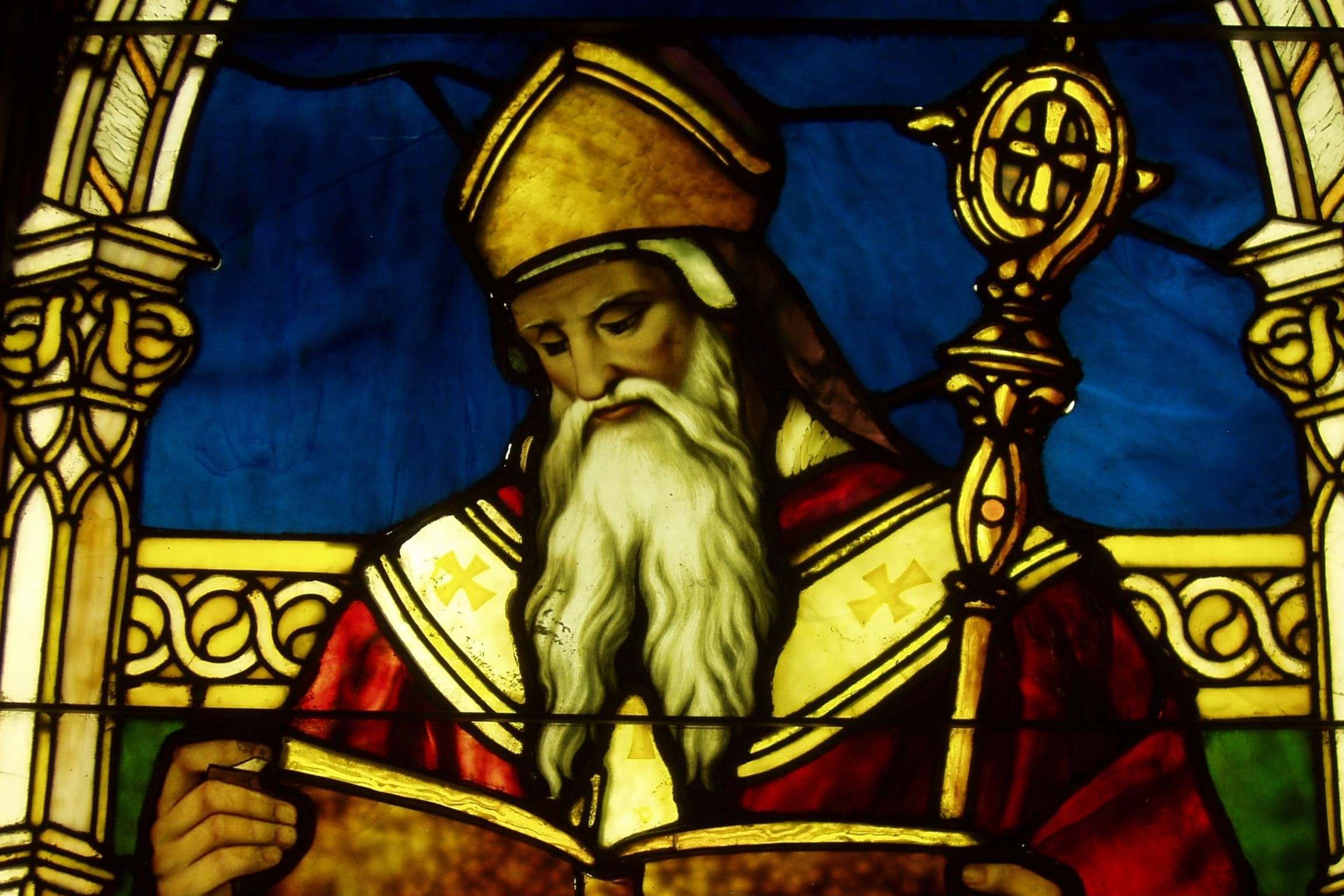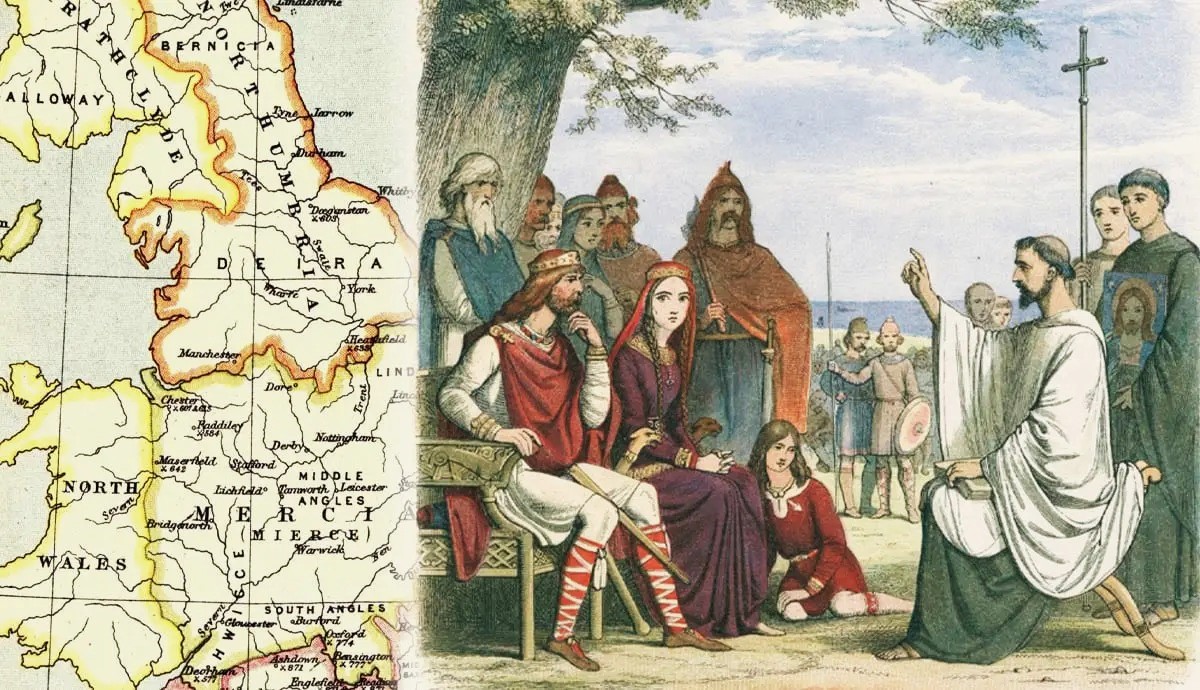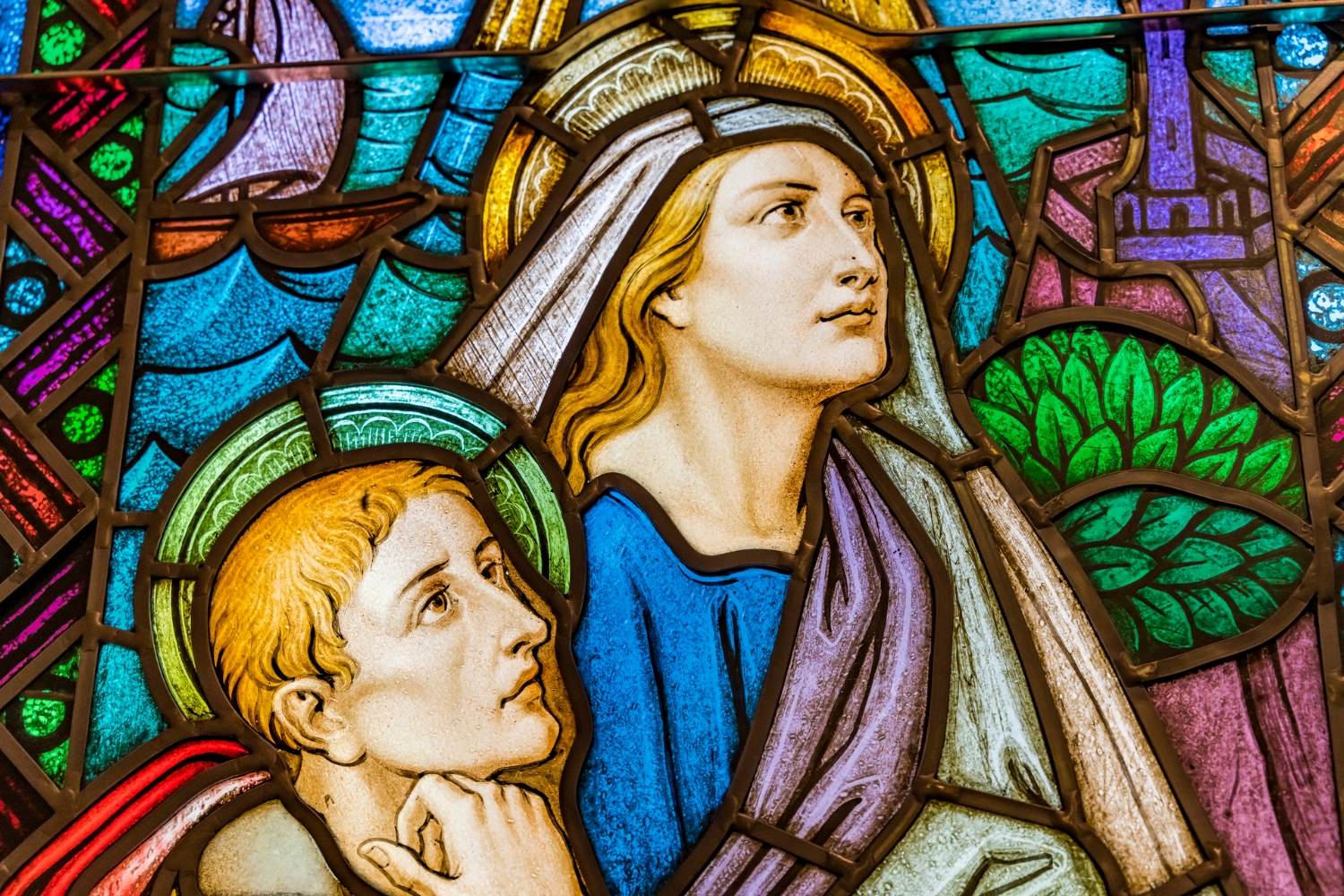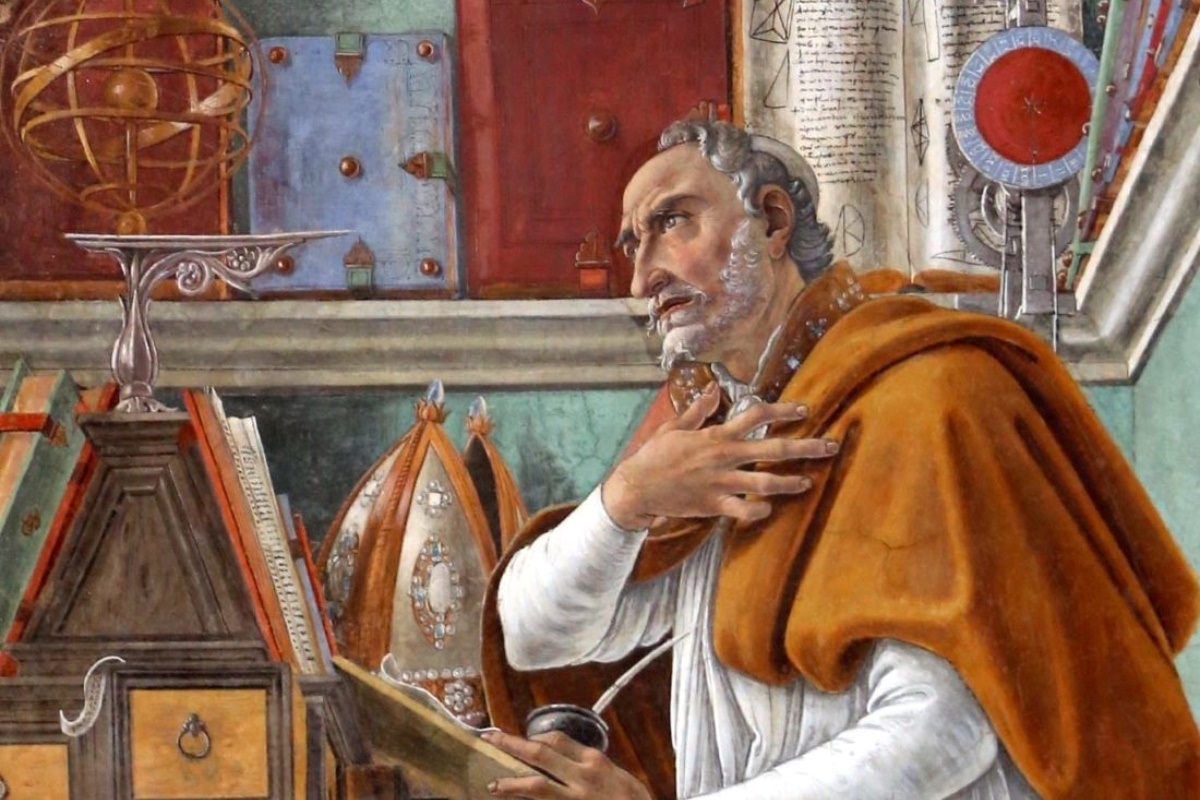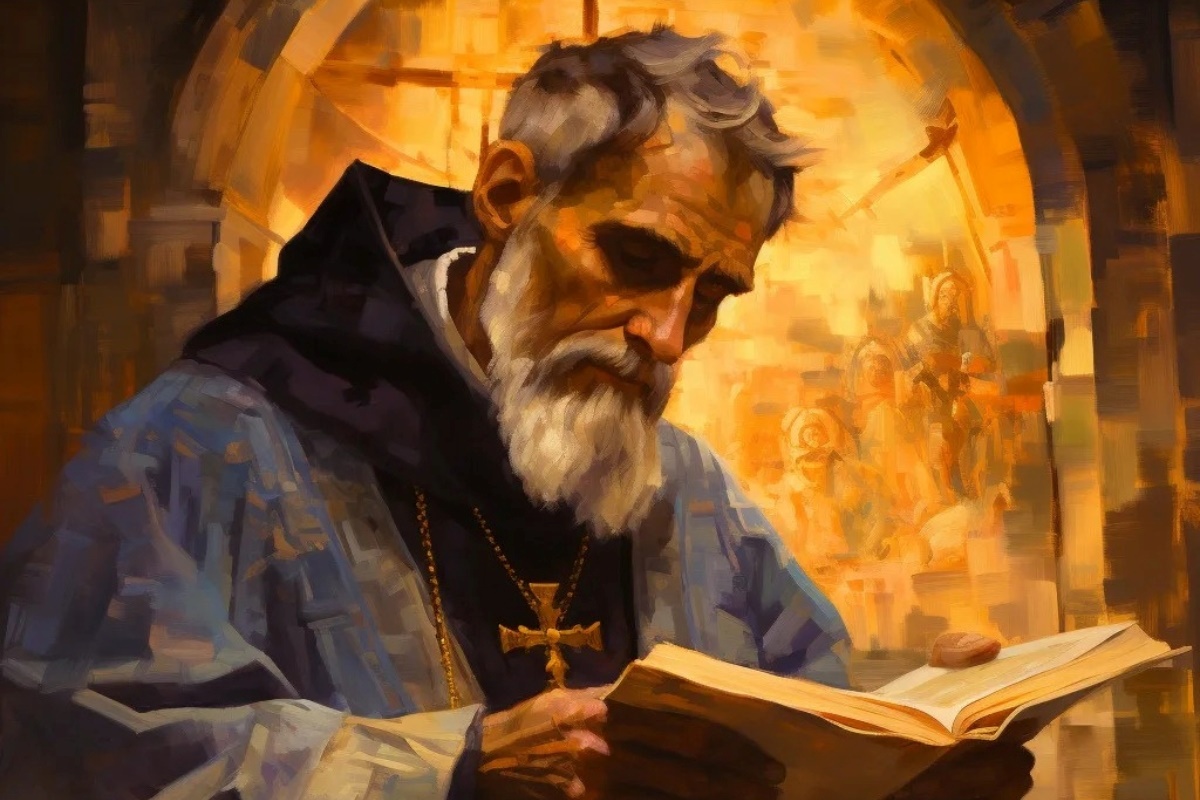Home>Theology and Spirituality>When Did Augustine Become A Saint
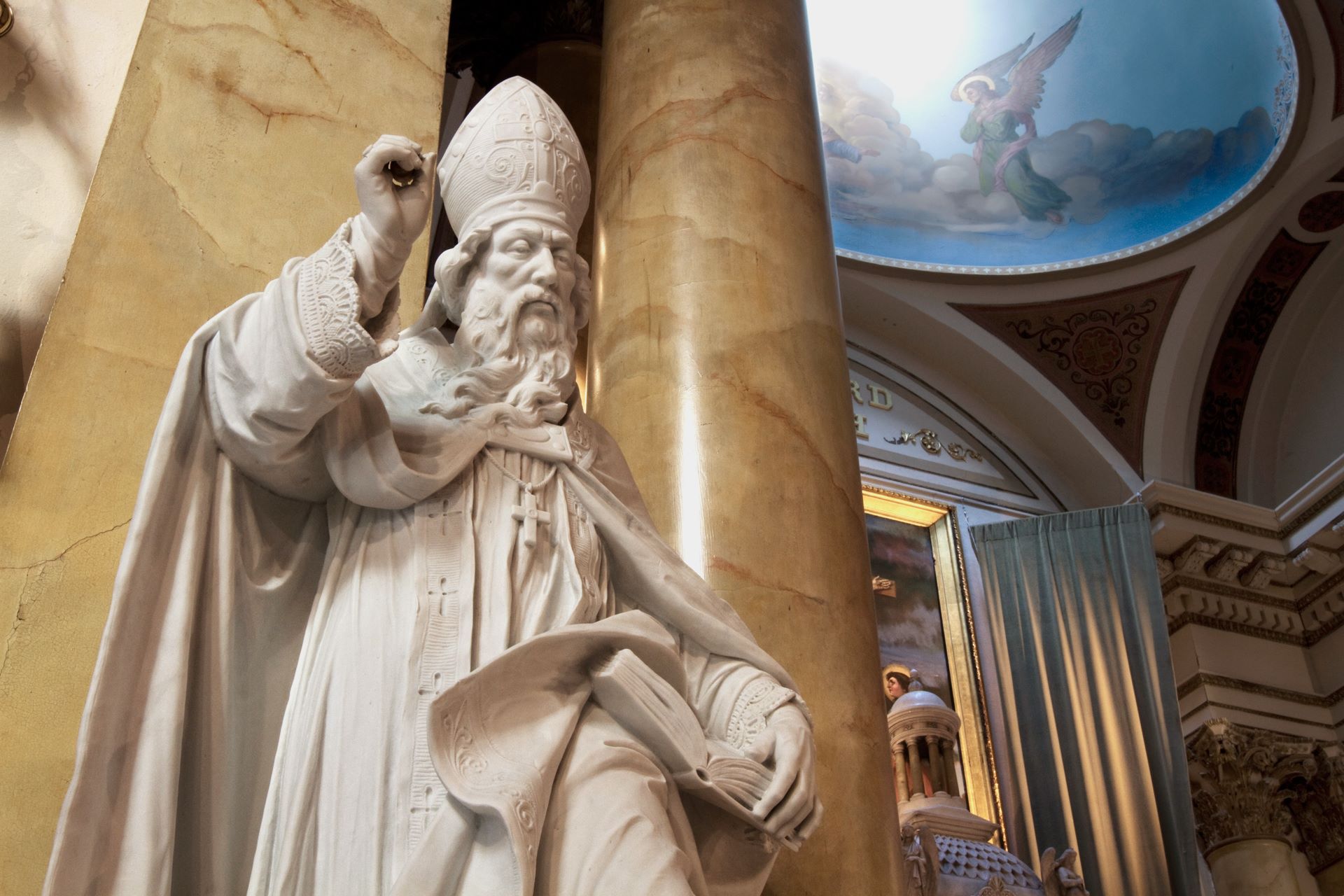

Theology and Spirituality
When Did Augustine Become A Saint
Published: February 10, 2024
Jason DeRose, Managing Editor at Christian.net, uses his expertise in religion and journalism to deepen understanding of faith's societal impacts. His editorial leadership, coupled with a strong academic background, enriches the platform’s diverse content, earning him recognition in both journalism and religious circles.
Discover the journey of Augustine's sainthood and its significance in theology and spirituality. Explore the historical timeline and the impact of his canonization.
(Many of the links in this article redirect to a specific reviewed product. Your purchase of these products through affiliate links helps to generate commission for Christian.net, at no extra cost. Learn more)
Table of Contents
Introduction
The story of Saint Augustine is a captivating journey of faith, intellect, and spiritual transformation. Born in the ancient city of Thagaste, in Roman North Africa, in the year 354 AD, Augustine's life unfolded during a time of great societal and religious change. His profound influence on Christian theology and philosophy continues to resonate through the centuries, making him a revered figure in both religious and intellectual circles.
As we delve into the life of Augustine, we will uncover the remarkable events and pivotal moments that shaped his path to sainthood. From his early years in Thagaste to his eventual canonization as a saint, Augustine's life is a testament to the enduring power of faith and the relentless pursuit of truth. Join us on this enlightening journey through the life and legacy of one of Christianity's most revered figures.
Early Life of Augustine
Augustine, originally named Aurelius Augustinus, was born on November 13, 354 AD, in Thagaste, a provincial town in Roman Africa (present-day Souk Ahras, Algeria). His father, Patricius, a pagan, worked as a municipal official, while his mother, Monica, a devout Christian, played a significant role in shaping Augustine's spiritual journey.
From a young age, Augustine exhibited exceptional intellectual abilities and a deep curiosity about the world around him. His thirst for knowledge led him to pursue education in rhetoric and philosophy, eventually taking him to Carthage, a bustling center of learning in the Roman Empire.
During his formative years, Augustine's life was marked by a period of spiritual exploration and personal struggles. He delved into the teachings of various philosophical schools, seeking answers to profound questions about existence and the nature of truth. His intellectual pursuits, however, often led him into a tumultuous inner conflict, as he grappled with the complexities of human desires and the pursuit of spiritual fulfillment.
Despite his mother's unwavering Christian faith and prayers for his conversion, Augustine initially embraced a lifestyle that was far removed from the teachings of Christianity. His pursuit of worldly pleasures and ambitions led him down a path that tested the boundaries of his faith and morality.
The early years of Augustine's life were characterized by a profound search for meaning and purpose, a quest that would eventually lead him to a transformative encounter with the Christian faith. This pivotal moment would set the stage for a remarkable journey of spiritual awakening and intellectual enlightenment, ultimately shaping the course of Christian theology and philosophy for centuries to come.
As Augustine's early life unfolded against the backdrop of a rapidly changing Roman world, the seeds of his future influence were sown in the rich tapestry of his experiences, struggles, and relentless pursuit of truth. These formative years would lay the foundation for the extraordinary legacy that Augustine would leave behind, transcending time and inspiring generations to come.
Conversion to Christianity
The turning point in Augustine's life came through a profound encounter with the renowned bishop and orator, Ambrose of Milan. Augustine, at this juncture, was deeply entrenched in his philosophical pursuits and a lifestyle that was at odds with the Christian faith. However, through his interactions with Ambrose and the stirring influence of his sermons, Augustine's intellectual barriers began to crumble, paving the way for a momentous spiritual transformation.
Ambrose's eloquence and profound understanding of scripture captivated Augustine, igniting a spark within him that would eventually lead to a profound shift in his worldview. The bishop's ability to reconcile the tenets of Christianity with philosophical reasoning resonated deeply with Augustine, bridging the chasm between his intellectual pursuits and the spiritual truths espoused by the Christian faith.
As Augustine grappled with the profound teachings of Ambrose and the stirring conviction of his sermons, he found himself increasingly drawn to the Christian faith. The relentless prayers of his mother, Monica, who had fervently interceded for his conversion, bore fruit as Augustine's heart underwent a profound metamorphosis.
Amidst a tumultuous inner struggle, Augustine experienced a pivotal moment of clarity and conviction. In the seclusion of a garden in Milan, he was enveloped by a profound spiritual upheaval, culminating in a decisive surrender to the transformative power of Christianity. This watershed moment marked the culmination of his arduous journey, as he embraced the Christian faith with unwavering fervor and resolute determination.
The conversion of Augustine stands as a testament to the enduring power of faith and the transformative influence of divine grace. His journey from a life of intellectual inquiry and moral turbulence to a steadfast commitment to the Christian gospel exemplifies the profound impact of spiritual awakening and the relentless pursuit of truth.
In embracing Christianity, Augustine embarked on a path that would not only shape his own destiny but would also leave an indelible mark on the course of Christian theology and philosophy. His conversion stands as a beacon of hope and inspiration, illuminating the transformative power of faith and the boundless mercy of divine grace.
Role in the Church
Following his conversion to Christianity, Augustine's unwavering commitment to the faith propelled him into a pivotal role within the Church. His profound intellectual acumen and fervent devotion positioned him as a prominent figure in the ecclesiastical landscape of the time.
Augustine's influence extended far beyond the confines of his local community, as he emerged as a formidable voice in the broader Christian world. His eloquence and erudition captivated audiences, drawing multitudes to his teachings and expositions of Christian doctrine. As a renowned preacher and theologian, Augustine's sermons resonated with a depth of insight and spiritual fervor that left an indelible impact on all who encountered his profound wisdom.
In addition to his eloquence, Augustine's theological prowess and intellectual rigor solidified his position as a leading authority within the Church. His seminal works, including "Confessions" and "The City of God," stand as enduring testaments to his profound theological insights and philosophical acumen. Through his writings, Augustine expounded on the complexities of human nature, the nature of sin, and the transcendent truths of the Christian faith, shaping the theological landscape for generations to come.
Moreover, Augustine's unwavering commitment to the Church's teachings and his tireless efforts to combat heresies and doctrinal deviations solidified his role as a stalwart defender of the Christian faith. His influential treatises and theological discourses served as bulwarks against theological distortions, earning him widespread acclaim as a guardian of orthodoxy.
As a bishop in the North African city of Hippo Regius, Augustine's pastoral care extended beyond the pulpit and the scholarly pursuits of theology. He exhibited a profound commitment to the spiritual well-being of his congregation, offering compassionate guidance and unwavering support to those under his charge. His pastoral initiatives and compassionate leadership endeared him to the faithful, fostering a legacy of profound spiritual impact and enduring reverence.
Augustine's role in the Church transcended the confines of his era, leaving an indelible imprint on the annals of Christian history. His intellectual prowess, unwavering devotion, and pastoral compassion solidified his legacy as a towering figure in the development of Christian theology and the enduring narrative of the Church's profound impact on the world.
Death and Legacy
Augustine's earthly journey culminated in the year 430 AD, marking the end of a life that had reverberated with profound spiritual insight and intellectual brilliance. His passing cast a profound sense of loss across the Christian world, as the legacy of his unparalleled contributions to theology and philosophy endured as a beacon of enlightenment and spiritual fervor.
The impact of Augustine's writings and teachings transcended the boundaries of his era, permeating the fabric of Christian thought and theological discourse for centuries to come. His magnum opus, "The City of God," stands as a monumental testament to his profound theological acumen and philosophical depth, offering timeless insights into the nature of human existence, the transcendent truths of the Christian faith, and the enduring conflict between the earthly realm and the divine order.
Beyond his theological treatises, Augustine's autobiographical work, "Confessions," remains a timeless masterpiece that continues to resonate with readers across the ages. In this introspective narrative, Augustine bares his soul with unflinching honesty, chronicling his spiritual odyssey and the transformative power of divine grace. His candid reflections on the complexities of human nature, the relentless pursuit of truth, and the unwavering mercy of God have left an indelible mark on the hearts and minds of countless seekers throughout history.
The enduring legacy of Augustine's profound theological insights and philosophical reflections continues to shape the contours of Christian thought, inspiring theologians, philosophers, and seekers of truth to grapple with the profound questions of existence and the nature of faith. His emphasis on the primacy of divine grace, the complexities of human nature, and the redemptive power of faith has left an indelible imprint on the theological landscape, fostering a rich tapestry of discourse and contemplation that endures to this day.
Moreover, Augustine's unwavering commitment to the Church and his steadfast defense of orthodox Christian doctrine solidified his legacy as a stalwart guardian of the faith. His tireless efforts to combat heresies and doctrinal distortions stand as a testament to his unwavering devotion to upholding the purity of Christian doctrine, earning him widespread acclaim as a bulwark against theological deviations.
In the wake of his passing, Augustine's legacy continued to flourish, shaping the trajectory of Christian theology and philosophy in profound ways. His enduring influence as a theologian, philosopher, and guardian of the faith remains an enduring testament to the transformative power of faith, the relentless pursuit of truth, and the enduring impact of a life wholly dedicated to the pursuit of divine wisdom.
The legacy of Augustine stands as a testament to the enduring power of faith, the relentless pursuit of truth, and the transformative influence of divine grace. His profound insights continue to illuminate the path of spiritual seekers, offering timeless wisdom and unwavering guidance in the quest for meaning, purpose, and spiritual fulfillment.
Read more: When Is The Feast Of Saint Augustine
Canonization as a Saint
The process of canonization, through which individuals are officially recognized as saints within the Catholic Church, is a meticulous and solemn undertaking that seeks to affirm the exemplary holiness and virtuous life of the candidates. In the case of Augustine of Hippo, the journey towards his canonization as a saint unfolded over the course of centuries, reflecting the enduring impact of his profound theological insights, unwavering commitment to the Christian faith, and the indelible legacy of spiritual enlightenment he left upon the world.
Augustine's enduring influence as a theologian, philosopher, and guardian of the faith solidified his status as a venerable figure within the annals of Christian history. His profound theological treatises, including "The City of God" and "Confessions," continue to resonate with readers across the ages, offering timeless insights into the nature of human existence, the transcendent truths of the Christian faith, and the enduring conflict between the earthly realm and the divine order.
The process of canonization for Augustine commenced with his formal recognition as a saint within the Catholic Church, a testament to his enduring impact on Christian theology and the spiritual landscape. His steadfast defense of orthodox Christian doctrine, unwavering commitment to the Church, and profound intellectual contributions positioned him as a paragon of virtue and spiritual insight, paving the way for his eventual canonization.
The enduring reverence and veneration accorded to Augustine within the Christian tradition underscore the profound impact of his life and teachings on the faithful. His unwavering dedication to the pursuit of divine wisdom, the relentless pursuit of truth, and the transformative power of faith exemplify the virtues that are held in high esteem within the process of canonization.
In the year 1303, Pope Boniface VIII officially recognized Augustine as a saint, affirming his exemplary holiness and profound contributions to the Christian faith. This momentous declaration solidified Augustine's status as a revered saint within the Catholic tradition, underscoring the enduring impact of his life and teachings on the spiritual landscape of the Church.
The canonization of Augustine stands as a testament to the enduring power of faith, the relentless pursuit of truth, and the transformative influence of divine grace. His profound insights continue to illuminate the path of spiritual seekers, offering timeless wisdom and unwavering guidance in the quest for meaning, purpose, and spiritual fulfillment.
